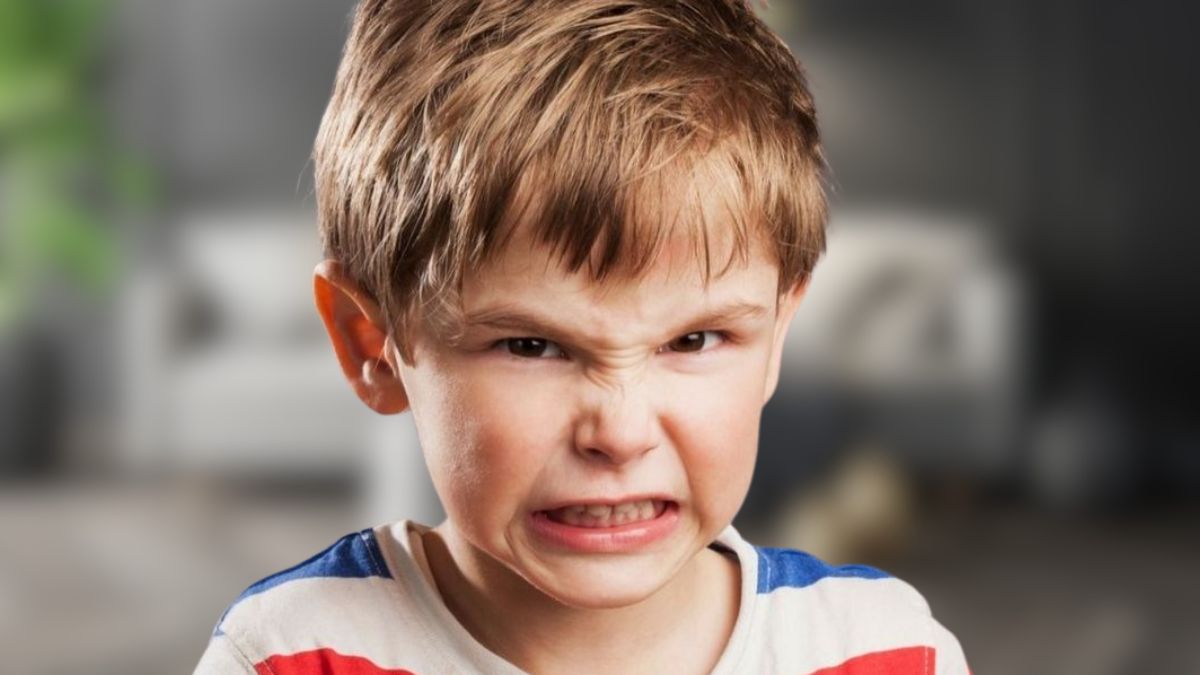As parents, we strive to create a safe and nurturing environment for our children, shielding them from harm and guiding them towards healthy development. However, in an increasingly complex and interconnected world, it can be challenging to navigate the countless influences that shape our children’s lives. From media exposure to societal pressures, there are surprising elements that we should never expose our kids to.
1. Violent Media

Exposing children to violent media, such as movies, TV shows, or video games, can have detrimental effects on their development. Research suggests that prolonged exposure to violence in media can lead to increased aggression, desensitization, and decreased empathy. Instead, encourage your children to engage in creative and educational activities that promote positive values and problem-solving skills.
2. Excessive Screen Time

While technology has its benefits, excessive screen time can negatively impact children’s physical health, mental well-being, and overall development. Extended periods spent staring at screens can lead to sedentary lifestyles, sleep disturbances, and reduced social interaction. Encourage a healthy balance by setting screen time limits, promoting outdoor activities, and engaging in quality family time.
3. Toxic Relationships

Children learn from the environment they are exposed to, including the relationships they witness. Exposing them to toxic relationships, be it between parents or other family members, can have lasting emotional and psychological effects. It is crucial to shield children from toxic dynamics, foster healthy communication, and provide them with a safe and supportive atmosphere to thrive in.
4. Harmful Body Image Ideals

In a society obsessed with unrealistic beauty standards, it is essential to shield children from harmful body image ideals. Exposing them to media that promotes an unhealthy focus on appearance can lead to body dissatisfaction, low self-esteem, and even eating disorders. Instead, encourage discussions around body positivity, promote diverse representations of beauty, and emphasize the importance of self-acceptance and inner qualities.
5. Age-Inappropriate Content

In an age where information is easily accessible, it’s crucial to protect children from exposure to age-inappropriate content. Whether it’s explicit or graphic material, discussions about mature topics, or unsupervised internet access, such exposure can lead to confusion, anxiety, and premature exposure to adult themes. Establish age-appropriate boundaries, monitor online activities, and have open conversations about appropriate content and its potential impact.
6. Substance Abuse

Exposing children to substance abuse, whether through personal experimentation or witnessing it in others, can have severe consequences on their physical and mental health. It’s essential to create a drug-free environment and educate children about the risks and dangers associated with substance abuse. By promoting open and honest discussions, establishing trust, and providing alternative coping mechanisms, we can help them make informed choices and avoid the pitfalls of addiction.
7. Explicit or Offensive Language

Using explicit or offensive language around children can shape their perception of communication norms and affect their own language development. Exposure to such language at a young age may lead to inappropriate behavior, difficulty forming healthy relationships, and an impaired understanding of respect and boundaries. Encourage respectful communication and model appropriate language to ensure a positive and respectful environment for your children.
8. Intense Competition

While healthy competition can be beneficial, subjecting children to excessive and intense competition from a young age can have negative consequences on their self-esteem and mental well-being. Instead, focus on fostering a growth mindset, emphasizing the value of effort, and encouraging cooperative activities that promote teamwork and collaboration. By doing so, you help your children develop a healthy perspective on success and reduce the pressures associated with excessive competition.
9. Excessive Consumerism

Overexposing children to materialistic values and excessive consumerism can lead to a skewed perception of happiness and self-worth. Encourage gratitude, contentment, and an appreciation for non-materialistic aspects of life, such as experiences, relationships, and personal growth. By teaching children the importance of mindful consumption and emphasizing the value of intangible qualities, we help them develop a healthier and more balanced perspective on material possessions.
10. Prejudice and Discrimination

Children are naturally curious and open-minded, but exposing them to prejudice and discrimination can shape their beliefs and attitudes negatively. It is essential to create an inclusive and accepting environment that celebrates diversity. Encourage empathy, educate them about different cultures, and challenge stereotypes through meaningful conversations and exposure to diverse experiences. By fostering an environment of tolerance and respect, we empower our children to be compassionate and open-hearted individuals.
11. Excessive physical punishments

Even if punishing kids is crucial for their discipline, severe physical punishment can lead to lasting emotional and physical scars. It can hinder a child’s trust in their parents and affect their emotional well-being, leading to potential long-term issues.
12. Not setting parent-child boundaries

Regret can arise from not establishing clear guidelines and authority. Failing to set boundaries can lead to confusion, lack of discipline, and challenges in the parent-child relationship, affecting the child’s ability to understand structure and limits. Your kids will not love it when they finally become adults.
13. Denying kids a good education

Knowing that the parents could have provided better educational support can lead to significant regret and guilt. As a parent, it is crucial to give your kids a good education at least until they are old enough to decide for themselves want to choose a different path.
14. Favoritism or showing blatant preferences

Openly favoring one child over another can create deep-seated emotional wounds and lifelong insecurities. Parents might regret realizing the damage caused to the child’s self-esteem and the strain on family dynamics.
50 Super Simple Side Hustle Ideas

50 Super Simple Side Hustle Ideas (& How to Make Them Work)
10 Frugal Lessons I Learned From Being Flat Out Broke

10 Frugal Lessons I Learned From Being Flat Out Broke
How To Make Money Without a Job

How To Make Money Without a Job
Creative Ways To Make Money

20 Easy Ways to Raise A Credit Score Fast

Read More: 20 Easy Ways to Raise A Credit Score Fast
Frugal Living Tips: The Essential Guide To Start Saving Money

Frugal Living Tips: The Essential Guide To Start Saving Money

